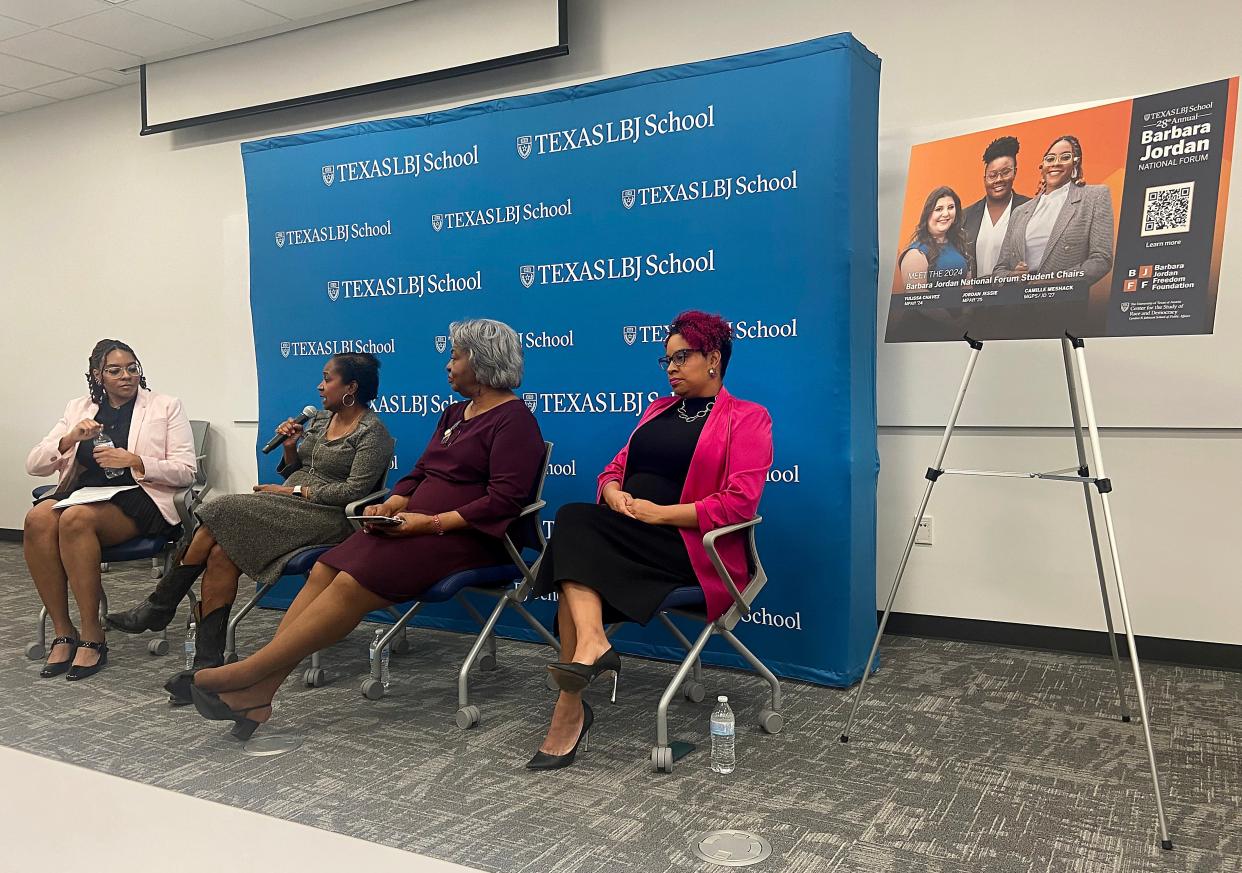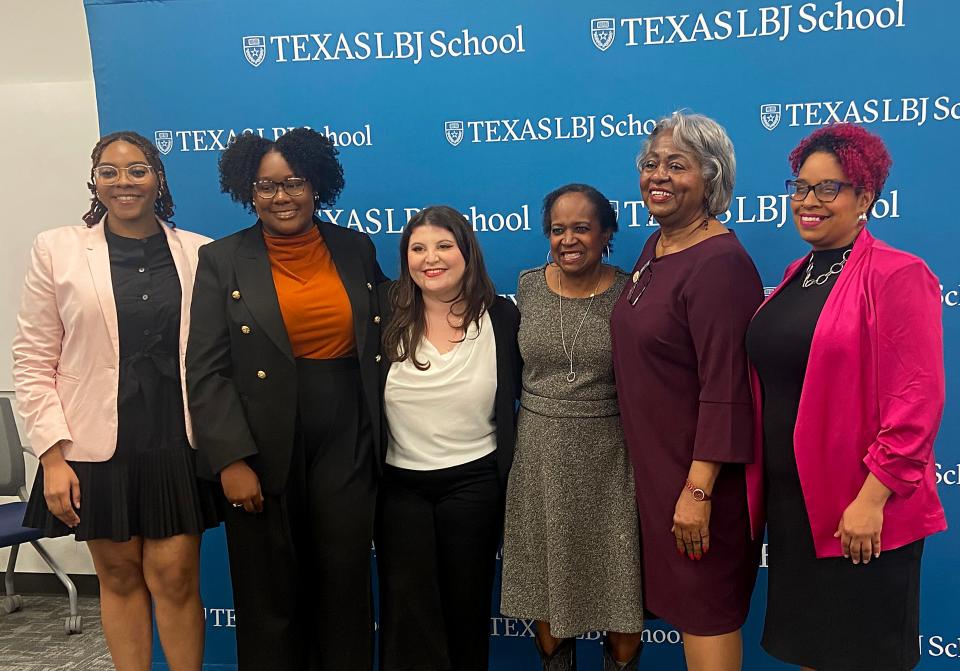How is Texas' DEI ban at universities affecting schools? Lawmakers, UT students talk SB 17

- Oops!Something went wrong.Please try again later.
Students at the University of Texas Lyndon B. Johnson School of Public Affairs, some of whom feel left behind in the state's polarizing political climate, including by a state ban on diversity, equity and inclusion programs at college campuses, are exploring ways to effect change.
Postgraduate students in the LBJ school are co-chairing the 28th annual Barbara Jordan National Forum this year to encourage civic engagement during "democratic uncertainty," leading political dialogue in the spirit of Jordan, a trailblazing lawmaker from Texas.
"In the national sphere, we're in an age of extreme polarization and partisanship, where typically our legislators are voting along party lines and the decisions that they're making don't always reflect the interests of the public or the public opinion," co-Chair Jordan Jessie, a first-year master's student at the LBJ School, told the American-Statesman. "We're just trying to shine a light on that there can still be civic engagement and mobilization, and we can still feel important and represented during a time like this."
At a discussion Monday, state Rep. Barbara Gervin-Hawkins, D-San Antonio; Rep. Sheryl Cole, D-Austin; and community organizer Nakeenya Wilson answered student questions about civic engagement and education, including about Senate Bill 17, a state law that went into effect Jan. 1 and prohibits DEI offices and initiatives at public colleges and universities in Texas.
Jordan, who died in 1996, was the first woman elected to the Texas Senate and later became the first Black woman from the South elected to the U.S. House. When Jordan retired from politics, she taught at the LBJ School as the Lyndon B. Johnson Centennial Chair of Public Policy.
Co-Chair Yulissa Chavez, a second-year master's student, said SB 17 makes people of marginalized groups feel unwelcome, including in political discussions. "That is not a future I want for our children, and I think Barbara Jordan would say the exact same thing," she said.
At the panel, Cole, who also serves on the House Higher Education Committee, said there has been "an assault on diversity." She said she fears the bill will affect professor recruitment, but she knows many of the effects are still unknown.
As a first-generation college student who started at UT in 1999, Wilson, the community organizer on the panel, said that diversity programming financed her education. She said her daughter was accepted into UT as well, but instead decided to go to Howard University, a historically Black research institution, because it seemed more supportive.
"We need to take a long, hard look at the long game here," Wilson said. "We are disarming brilliant young people that take taking away their choice to be at a world class university because we're not going to support them and make them feel like they belong and give them the resources that they need."

Gervin-Hawkins agreed and said that though the bill might "hurt the perception overall" of Texas universities, how institutions of higher education implement the policy will determine what needs to be addressed.
"When we look at what's happening now in our universities, and I was quite disappointed on what was going on, but the reality is, are we facing the issues? Let's talk about how we deal with it," she said. "I'm a big believer that through every challenge is an opportunity for us."
In an interview Friday, UT President Jay Hartzell told the Statesman that the university is in a moment of change, but its commitment to caring for students has not changed.
"We may have different tools at our disposal that we can use to help our students, but the main thing is we're going to continue to work to help our students," he said.
Panelists and student organizers said engaging with causes, representatives and elections can lead to progress.
"All communities need to stop seeing themselves as victims and get into a mode of understanding, that getting engaged is paramount to moving the needle on anything that you want to do," Gervin-Hawkins said at the panel. "We've got to become the victors in our system, not the victims."
The week's events are hosted by the Barbara Jordan Freedom Foundation and the LBJ School. On Wednesday, Dr. Ruth Simmons, a Rice University presidential fellow who was the first Black woman to become president of an Ivy League school, will give a keynote address and receive the Barbara Jordan Public Service Award.
Chavez said Jordan's values reflect having "courageous conversations" in divisive political times, especially to address constraints on education. Chavez said it was important for her to be involved and discuss SB 17 to continue Jordan's legacy.
"I, being a Latina, first-generation student myself, felt that it was almost an obligation to mobilize other young people or people who may be intimidated to be in this political process to join this conversation," Chavez said. "I think (these are) conversations that Barbara Jordan, if she were alive today, would definitely step into."
This article originally appeared on Austin American-Statesman: Texas lawmakers discuss DEI ban at UT Barbara Jordan National Forum

